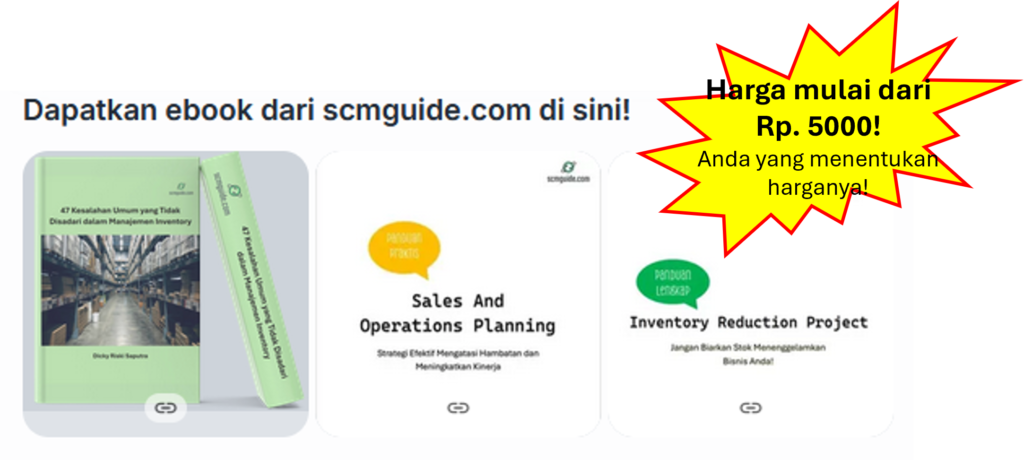Have you ever found yourself wondering, “Should I stick with my current job or explore new opportunities?” If you’re a supply chain professional, you’ve probably faced this dilemma at some point. It’s not an easy decision, and both options—staying loyal to your current company or making a move—come with their own set of rewards and risks.
Let’s talk this through together. By the end of this blog, you’ll have a clearer picture of which path might suit you best based on your goals, priorities, and what really matters to you.
Before we go further into this topic, don’t forget to follow my LinkedIn account. You’ll get more helpful insights on supply chain management there.
Table of Contents
The Allure of Loyalty: Why Staying Might Be the Right Choice
Staying with your current company can feel safe, comfortable, and rewarding. But beyond those surface benefits, there’s a lot more to be said about loyalty and its potential to shape your career.
Deep-Rooted Understanding
When you’ve been with a company for a long time, you just get it. You know the ins and outs of its operations, how decisions are made, and even the little quirks of its culture. This kind of understanding gives you a massive advantage.
Think about it: when you know how everything works, you can predict challenges, solve problems quickly, and make decisions with confidence. You’re the go-to person for your team because you’ve built up that expertise over the years.
Strong Relationships
Time builds trust. By staying, you’ve likely formed solid relationships with colleagues, clients, and suppliers. These connections can make your work life smoother and more enjoyable.
In the supply chain world, where collaboration is everything, having strong relationships can save the day. Whether it’s negotiating better terms with a supplier or rallying your team during a tough season, trust is your superpower.

Career Progression
Loyalty often pays off. Many companies reward long-term employees with promotions, leadership opportunities, and bigger responsibilities. And because you already understand the company’s goals and culture, stepping into a new role internally can feel natural.
But here’s the catch: you have to make yourself visible. Don’t assume promotions will land in your lap just because you’ve been around. Be proactive and show you’re ready for the next step.
Job Security
Let’s be honest—job security matters, especially during tough economic times. Employers are less likely to part ways with someone who’s proven their loyalty and consistently delivers results.
But security doesn’t mean settling. Even in a stable role, the supply chain industry evolves quickly. Staying relevant is key, no matter how secure you feel.
You might also like:
- Survival Over Profit: How Businesses Can Endure Global Conflict and Supply Chain Chaos
- Think You Can Predict Demand? Here’s Why You’ll Never Be 100% Right (and That’s Okay)
How to Make Staying Work for You
If you’re choosing to stay, don’t let things get stagnant. Here are some ways to keep growing while staying loyal.
Seek Out Challenges
Volunteer for new projects or responsibilities. Step outside your comfort zone to keep learning and growing.
Continuous Learning
Stay ahead of industry trends by attending workshops, earning certifications, or simply keeping up with the latest tools and practices. For example, if your company isn’t using AI in its supply chain yet, why not spearhead that initiative?
Build Relationships
Relationships need care to thrive. Keep networking within your company. Stay connected with colleagues in different departments to expand your influence.
Drive Innovation
Don’t be afraid to share bold ideas. Whether it’s optimizing inventory processes or cutting lead times, your ability to innovate will set you apart.
The Allure of Change: Why Leaving Might Be the Best Move
Sometimes, staying isn’t enough. If you’re feeling stuck, undervalued, or simply curious about what else is out there, it might be time to explore new horizons. Change can be intimidating, but it also brings growth and excitement.
Diverse Experiences
When you switch jobs, you expose yourself to new industries, cultures, and ways of working. This variety can open your mind to fresh ideas and make you a better problem solver.
Imagine moving from a manufacturing company to an e-commerce startup. You’d gain a whole new perspective on managing fast-moving supply chains, which could be invaluable later in your career.

Skill Acquisition
Every new role is a chance to learn. You might pick up advanced analytics skills, gain experience in sustainability initiatives, or dive into international logistics. These skills not only make you more marketable but also boost your confidence.
Career Advancement
Let’s face it—sometimes, climbing the ladder is easier when you start fresh. If your current company isn’t offering the opportunities you want, a move might be your fastest route to leadership.
Plus, hiring managers often view candidates with diverse experiences as adaptable and innovative. That’s a big advantage when you’re gunning for a higher-level position.
Higher Compensation
Switching jobs can also mean a significant pay bump. Many professionals see a salary increase of 20-30% when they change companies, along with better benefits. If financial growth is a priority, exploring new opportunities could be the way to go.
You might also like:
- Maximizing Negotiation Opportunities in Supply Chain: You Don’t Have to Say Yes to Everything
- Managing Deflation’s Impact on the Supply Chain: Challenges and Solutions
How to Thrive After a Move
Starting fresh can be overwhelming, but with the right mindset, it can also be incredibly rewarding. Here’s how to make the most of it.
Embrace Discomfort
Change isn’t always easy, but it’s where growth happens. Be ready to adapt and learn as you go.
Stay Curious
Ask questions. Whether it’s about your new company’s processes or industry trends, a curious mindset will help you grow quickly.
Build Relationships
Take the time to connect with your new colleagues. Strong relationships are just as crucial in a new role as they were in your last one.
Focus on Opportunities
Rather than dwelling on what’s unfamiliar, focus on the possibilities ahead. A positive outlook will help you navigate challenges with ease.
Finding the Right Path: What’s Best for You?
So, should you stay or should you go? The answer depends entirely on you—your goals, values, and circumstances. Let’s break it down together:
Career Aspirations
What does your dream career look like? If your current job is helping you move closer to that vision, staying might make sense. But if you feel stuck or uninspired, it could be time to move on.
Personal Goals
Your career doesn’t exist in a vacuum. Consider how your decision will affect your personal life. Will a new job give you more flexibility for family? Will staying offer the stability you need right now?
Risk Tolerance
Are you comfortable stepping into the unknown? If you thrive on challenges and can handle uncertainty, a move might be exciting. If you prefer stability, staying put might be the better choice.
Financial Considerations
Money isn’t everything, but it’s still important. Are you looking for a higher salary to reach financial goals, or does your current job provide the security you need? Weigh both the short-term and long-term implications.
Let’s Wrap It Up
At the end of the day, whether you stay or go, the key is to be proactive. Don’t let your career just happen to you—take charge of it.
If you decide to stay, focus on growing within your role, building relationships, and staying up-to-date with industry trends. If you decide to leave, embrace the change with an open mind, learn as much as you can, and make the most of the opportunities ahead.
The supply chain industry is full of exciting possibilities, no matter which path you choose. So, take a moment to reflect, weigh your options, and trust yourself to make the right decision. You’ve got this!
I hope you find it helpful!
Please share this article with your colleagues so they can also benefit. For more insights on supply chain management, follow my LinkedIn account. You’re free to use all articles on this blog for any purpose, even for commercial use, without needing to give credit.

 by
by 


